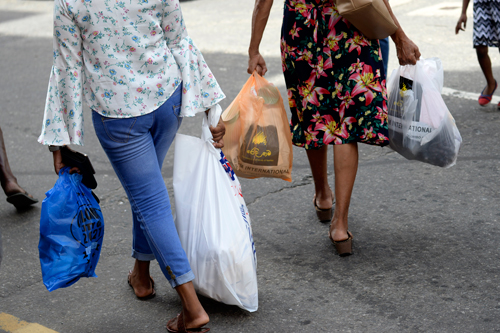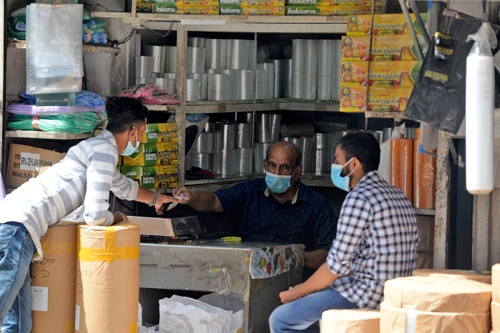News
Will polythene ban stick this time, ask twice-shy makers
 Today, the government’s ban on polythene lunch sheets will come into effect but several polythene manufacturers expressed scepticism that the policy would survive.
Today, the government’s ban on polythene lunch sheets will come into effect but several polythene manufacturers expressed scepticism that the policy would survive.
The Polythene Manufacturers and Recyclers Association said successive governments had announced a ban but failed to implement the policy.
It was five years since a ban on lunch sheets was announced but not implemented, the association said. In 2017 then president Maithripala Sirisena announced a ban on the use of polythene products and lunch sheets by.
Association President Anura Wijetunge said 14 of the body’s members that had taken the government’s decision seriously then had registered with the Central Environment Authority (CEA) in 2017 and imported raw material worth over Rs. 3 million of polythene substitute that had turned into waste as the product was not selling.

Is this the right time to impose the ban as clamping down on small manufacturers would result in job losses, ask other players in the industry. Pic by Eshan Fernando
The CEA’s lethargy in cracking down errant traders and the 200-plus cottage industries that produced polythene products had contributed to this disaster, he said.
With business as usual and with plenty of the traditional product available at a cheaper price in the market, consumers ignored the compostable lunch sheets, which cost three times more than the polythene sheets.
One manufacturer said he had to store 30 tons of imported raw material in his warehouse for more than a year as there was no demand for the product.
Tons of the manufactured product had turned to waste as the compostable lunch sheets only had a life span of six months.
Now, once again, the CEA has called on companies to register with it to manufacture biodegradable lunch sheets.
Mr. Wijeratne said 10 of the 14 companies that had previously registered to manufacture the product had left as they did not want to suffer more losses.
The remaining four firms had to pay about Rs. 100,000 to re-register.
“This is wrong as we should have been allowed to use our previous registrations that cost us Rs. 100,000 that resulted in naught,” Mr. Wijetunge said.
Other players in the industry said this was not the right time to impose the ban as clamping down on small manufacturers would result in job losses.
The President of the Laminating Association, which is involved in the manufacture of wrappers for packaged food, said these were times of austerity and the government should take note that the livelihood of families was at stake.
CEA Chairman Siripala Amarasinghe declared this time the government was determined to impose the ban.
The decision to implement the ban was announced in January and six months had been given to find alternatives, he said.
He called on the public to understand the importance of the ban and cooperate with authorities, saying every year some 5,475 million lunch sheets – 15 million a day – are released into the environment.
Environment Minister Mahinda Amaraweera recently called for public support to implement the ban. “This is for the sake of the environment and public health,” he said.
The CEA said the Consumer Affairs Authority and the police would be strict with law-breakers. The Environment Ministry recently announced a 10-fold increase in the former Rs. 10,000 fine for production, distribution and sale of polythene-based lunch sheets.
Accordingly, errant businesses will be fined Rs.100,000 and all their machinery and equipment confiscated.

